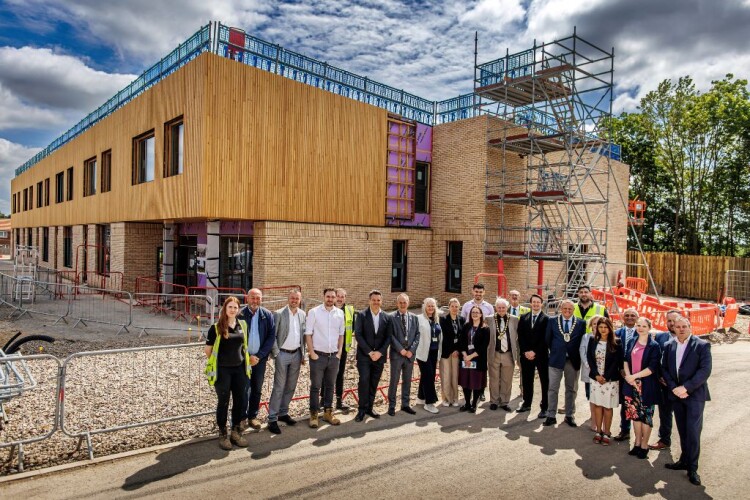Morgan Sindall looks to add AI to carbon calculator
Morgan Sindall Construction has received a £1m grant from Innovate UK to refine its CarboniCa whole life carbon measurement tool.
Morgan Sindall is looking to harness the power of artificial intelligence to make its whole life carbon measurement tool better and faster.
Morgan Sindall Construction is working with Nottingham Trent University and Warrington-based software company ConstructSys to take CarboniCa to the next level.
CarboniCa was launched by Morgan Sindall Construction in 2021 as a whole life carbon measurement tool and it is already being used on more than 100 large building projects each year. Morgan Sindall reckons that it has saved more than 30,000 tonnes of carbon to date.
The Innovate UK funding will allow the partners to develop algorithms that automate the process of data collection and evaluation in whole life carbon assessments (WLCAs), speeding up the process. By harnessing AI capability, the new system will accelerate creating WLCAs by as much as 85%, they say.

Tim Clement, director of social value & sustainability at Morgan Sindall Construction, said: “We started working on the research and development phase of CarboniCa back in 2017 and the Innovate UK funding award recognises the enormous potential for further development of the tool we have already in service and helping reduce carbon in a transparent, credible way. Innovation in this area has much to contribute in terms of increasing confidence in decision-making around sustainability, something that can only happen with credible data outputs being made more readily available. We have an established and highly effective working relationship with our research and development partners at Nottingham Trent and ConstructSys respectively. Our next step is building a cutting edge AI engine into a state of the art system that drastically reduces the time taken to produce an accurate WLCA. The funding means we can develop a series of new algorithms to exploit the growing dataset of actual project data already inputted into the CarboniCa tool, streamlining the process of creating early-stage benchmarks for different building types. The algorithms will also generate insights based on human-curated product databases, to further the tool’s mission as a carbon reduction tool.”
He added: “Digital systems such as building information modelling (BIM) have been around for a long time now and, when harnessed effectively, make a hugely positive impact in terms of successfully delivering projects. When it comes to the creation and adoption of next generation solutions, such as harnessing AI and machine learning, there are even bigger challenges, such as making sure we use the technology in a highly transparent, human-centred way. That’s why the innovation we are applying to here is important and can help set a path to a lower carbon future.”
Nottingham Trent University’s research team operates within its School of Architecture, Design & the Built Environment. It is led by Amin Al-Habaibeh, professor of intelligent engineering systems, and Emmanuel Manu, associate professor in construction management.
Prof Al-Habaibeh said: “This is a great opportunity to implement cutting-edge deep learning AI technology to enhance productivity, improve competitiveness and speed up the evaluation process of building’s carbon footprint. This will enable a better material selection and more optimum designs to address climate change. This collaboration with Morgan Sindall and partner organisations will bridge the gap between academic innovation and implementation and will also benefit NTU’s future AI teaching and training in wide range of disciplines as sustainability is at the heart of everything we do.”
Got a story? Email news@theconstructionindex.co.uk
News by Category
- BECBC
- Cumbria
- Nuclear
- Social Value
- Professional Services
- Clean Energy
- Business
- People
- Government
- BECBC Member News

